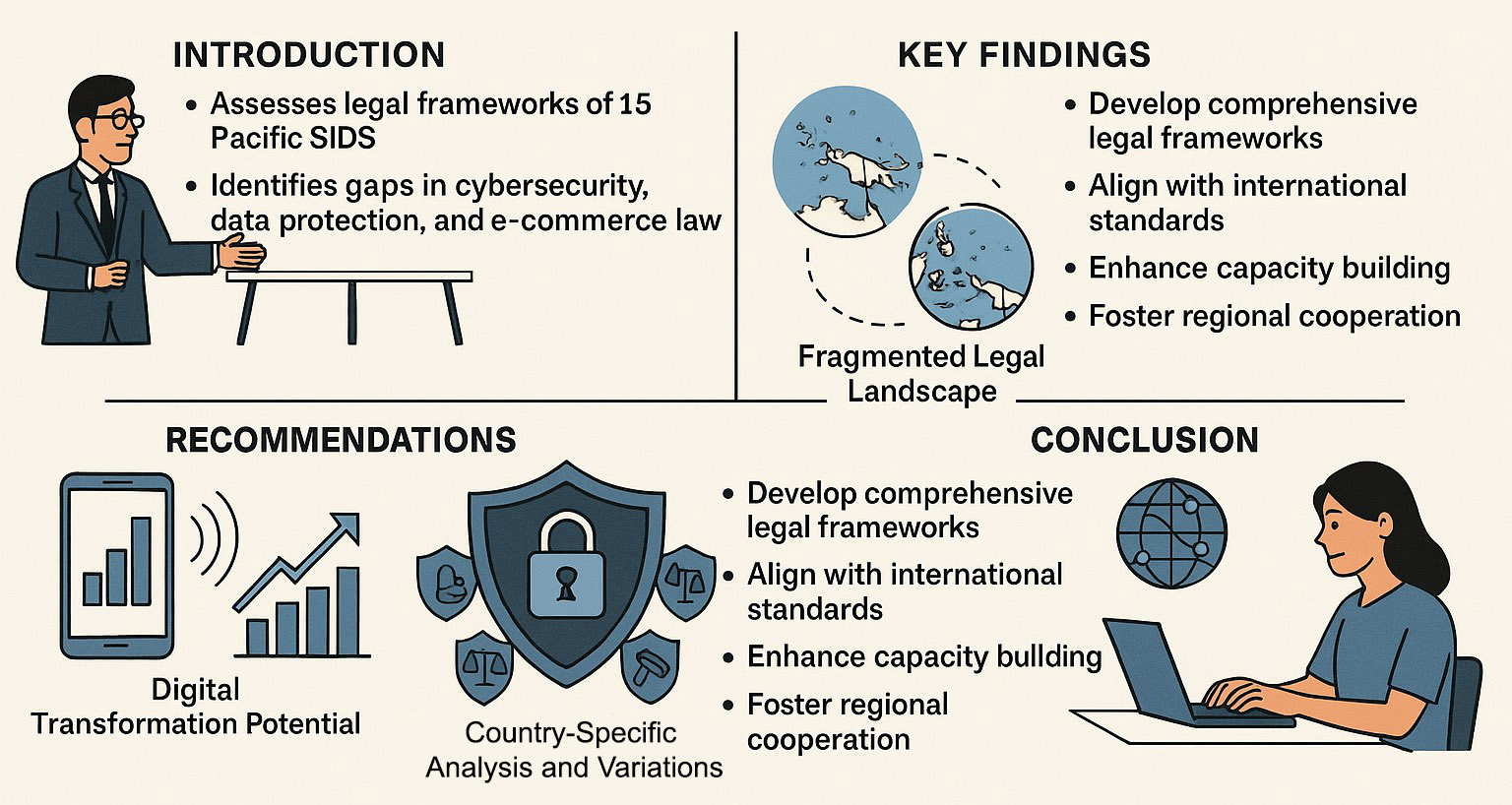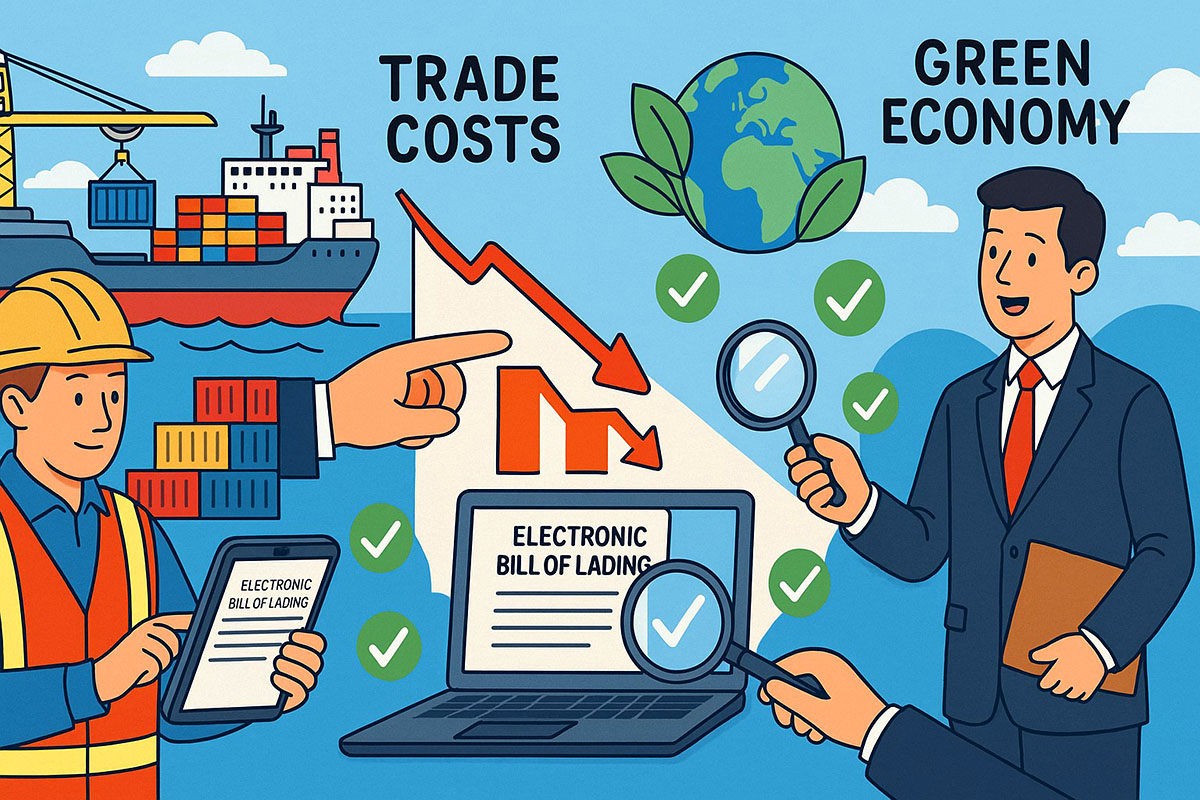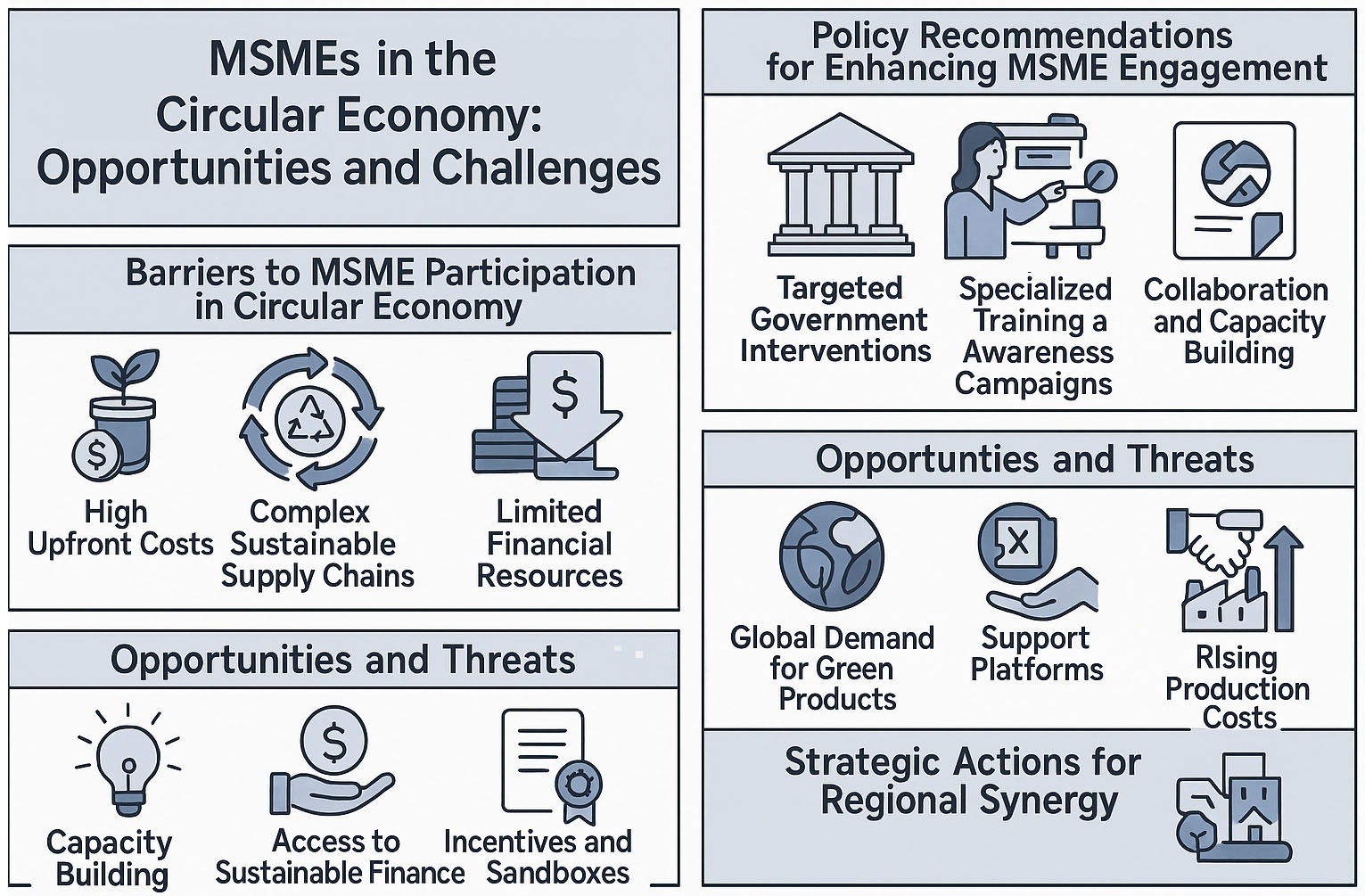Analyses
-
Digital Economy Agreements in Asia and the Pacific: Strategic Insights and Emerging Trends
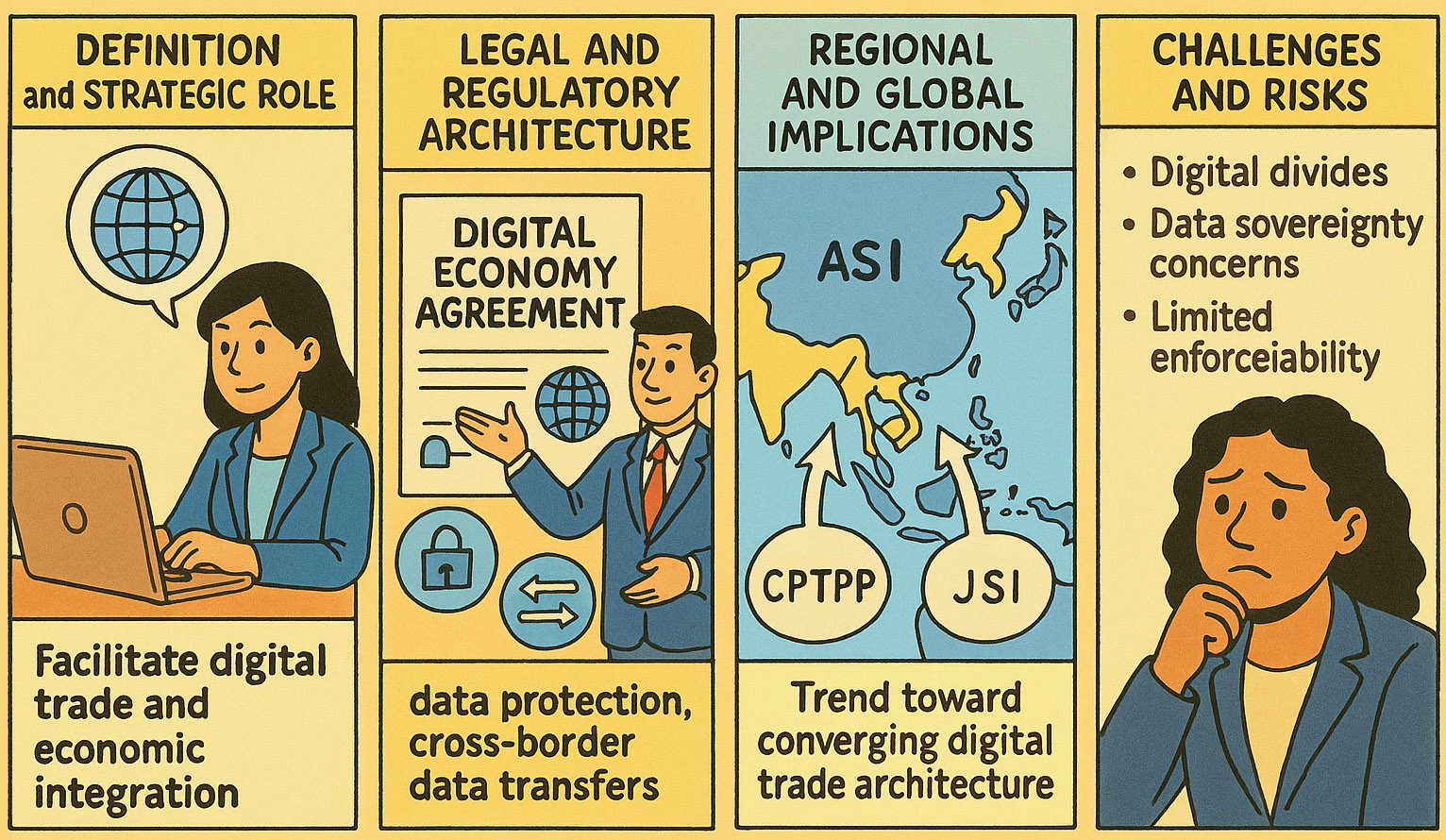
The Asian Development Bank (ADB) publication “Digital Economy Agreements in Asia and the Pacific” explores how countries across the region are navigating the rapid transformation of trade in the digital era. Digital Economy Agreements (DEAs) are becoming critical frameworks for fostering cross-border digital trade, ensuring regulatory coherence, and promoting economic integration in a landscape increasingly Read more
-
The Gap Analysis of Cyberlaws in Pacific Small Island Developing States report by the United Nations Conference on Trade and Development (UNCTAD) is an extensive document that assesses the state of legal frameworks governing the digital economies of 15 Pacific SIDS. Published in 2024, this report provides a detailed examination of how Pacific island nations Read more
-
On base report “Trade Finance in Central America and Mexico” trade finance plays a crucial role in facilitating the smooth flow of goods and services across borders. In Central America and Mexico, trade finance is not just a tool for managing risks and securing working capital; it is an essential mechanism that supports the region’s Read more
-
International Trade Centre created document “Expediting Trade Through Electronic Bills of Lading” focuses on the growing use of electronic bills of lading (eBLs) in global trade, an innovative digital solution that offers numerous advantages over traditional paper-based systems. It explores the economic, environmental, and security benefits of adopting eBLs, as well as the challenges that Read more
-
Building Supply Chain Resilience in ASEAN: Extended Analysis of ADB’s Strategic Roadmap
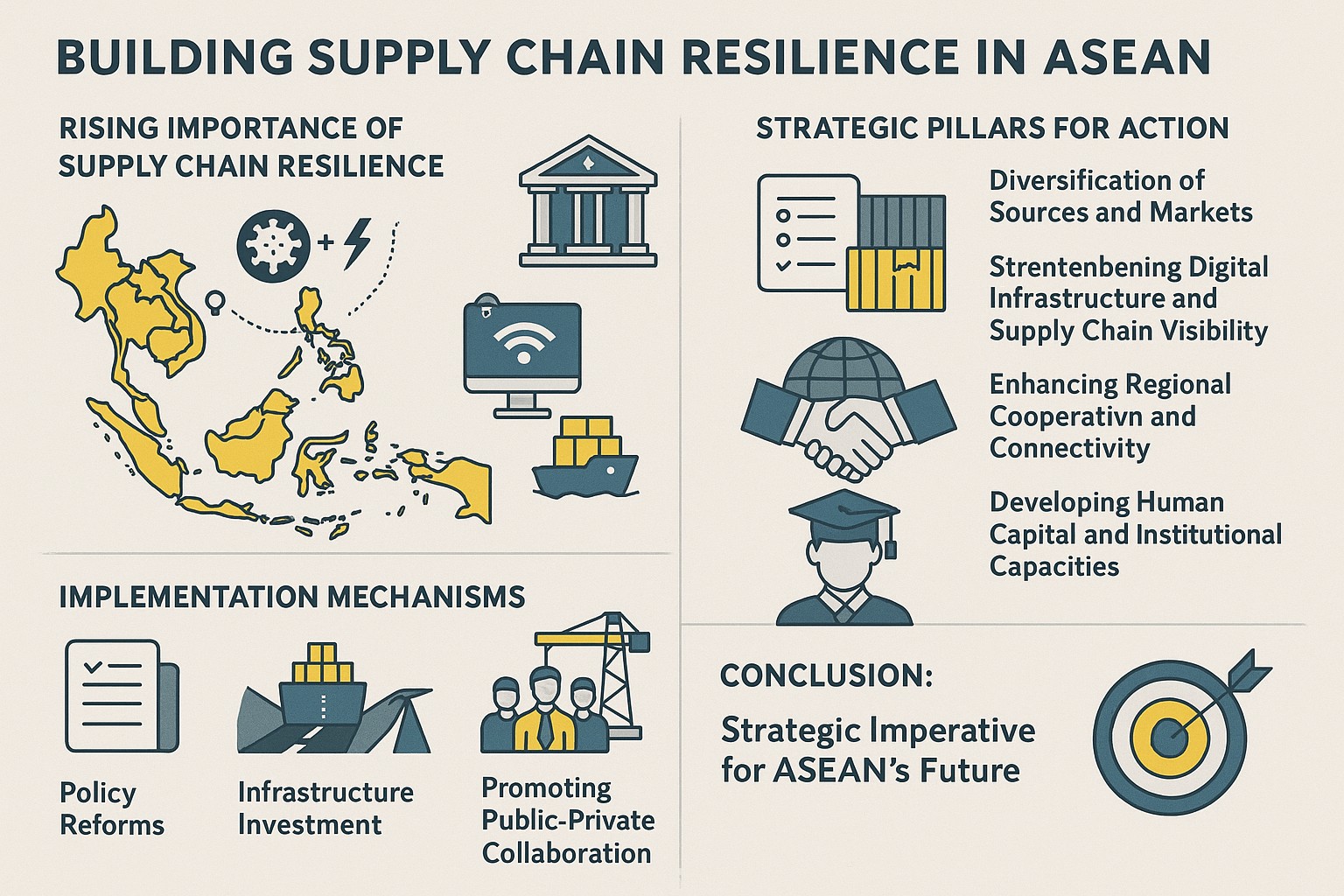
The Asian Development Bank (ADB), in its report Building Supply Chain Resilience in ASEAN, presents a detailed strategy for how ASEAN economies can fortify their supply chains in an increasingly volatile global environment. Recognizing the significant disruptions caused by COVID-19, geopolitical tensions, technological shifts, and climate change, the document stresses the urgent need for diversified, Read more
-
The recent study titled “Study on MSME Participation in the Circular Economy”, published by the ASEAN Secretariat with support from GIZ, provides an in-depth analysis of the role of Micro, Small, and Medium Enterprises (MSMEs) in advancing circular economy (CE) practices within the ASEAN region. This study validates policy recommendations aimed at enhancing MSME engagement Read more
-
Impact of Trade Digitalization on Trade, Wages, and Producer Prices: Global, Regional, and National Estimates
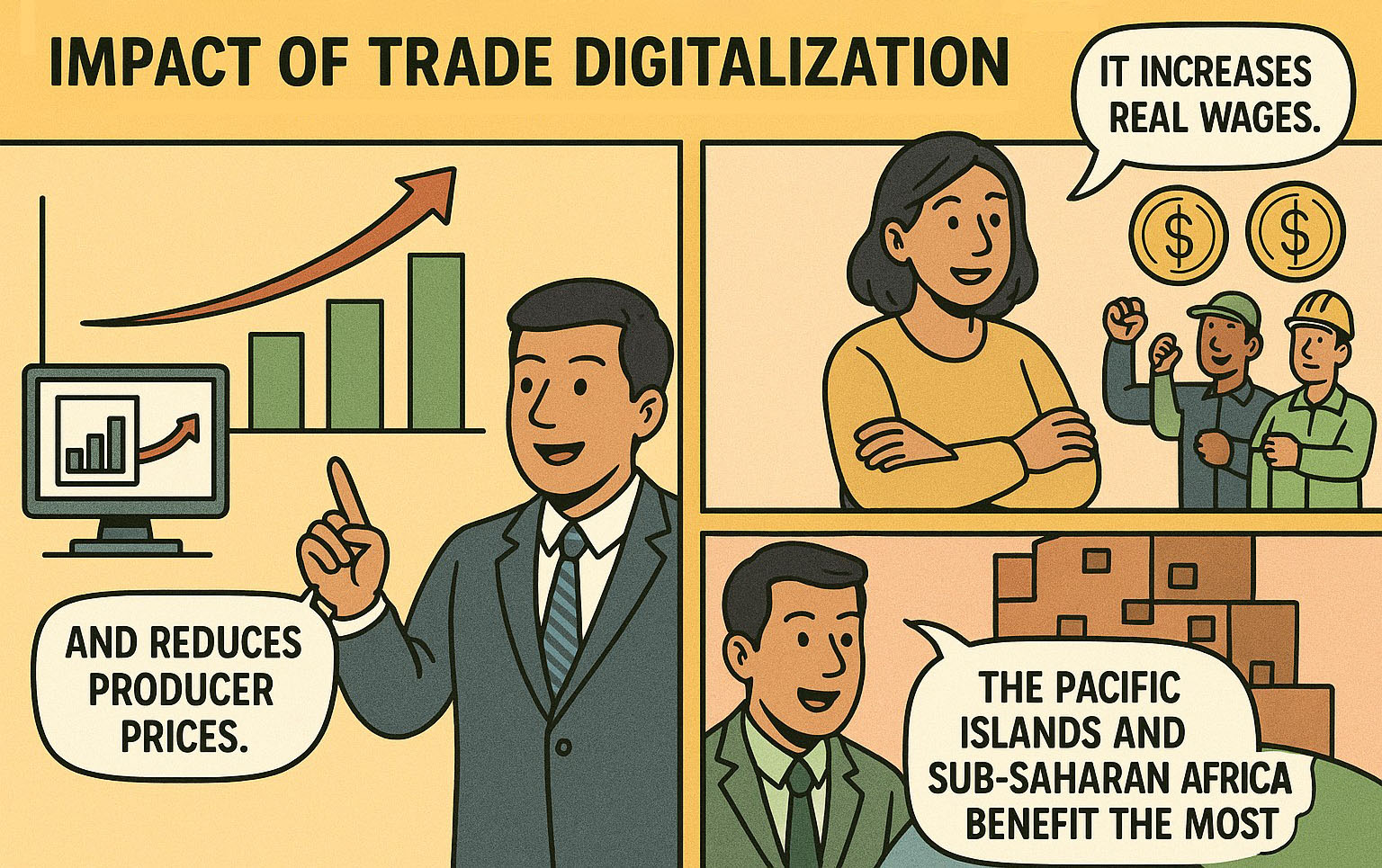
This comprehensive study, published by the United Nations Economic and Social Commission for Asia and the Pacific (UN ESCAP) in April 2025, was prepared by Chorthip Utoktham and Yann Duval. It investigates the macroeconomic implications of trade digitalization, particularly its influence on international trade flows, real wages, and producer prices, using an innovative and data-driven Read more
-
2025 National Trade Estimate Report: Barriers, Policy Challenges, and U.S. Trade Response
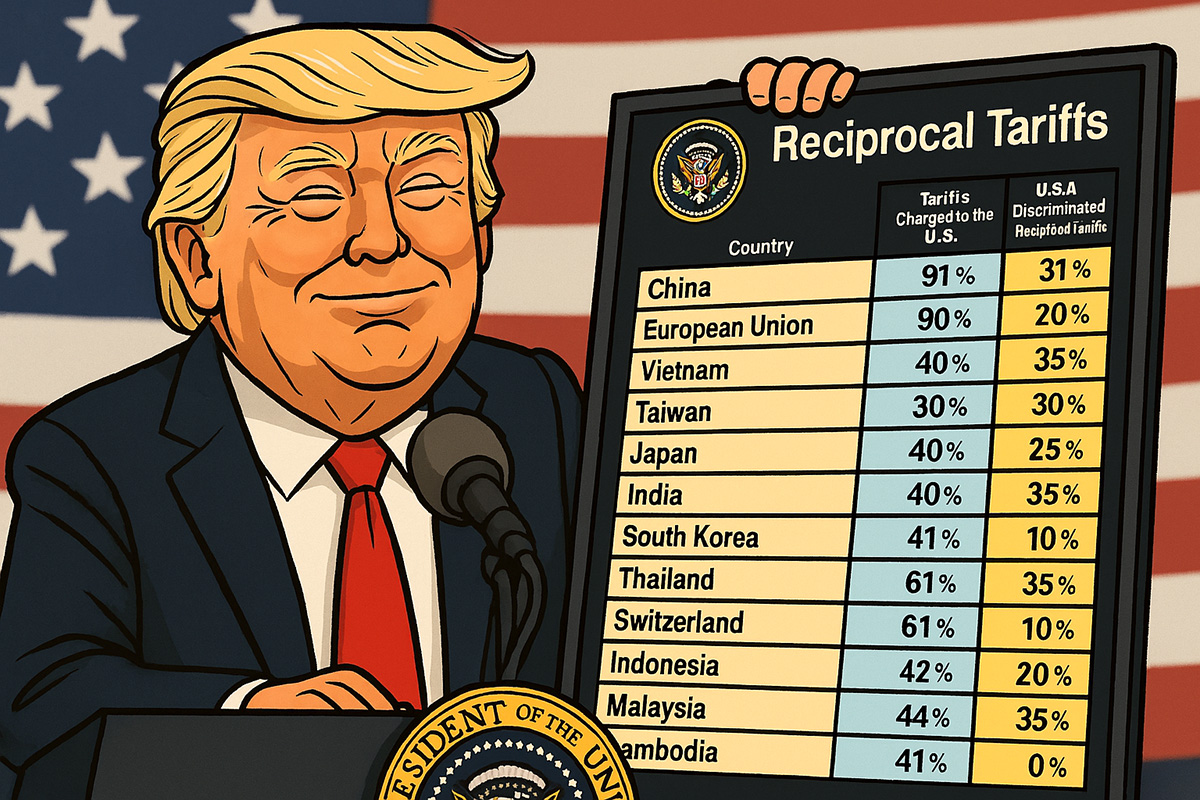
The 2025 National Trade Estimate (NTE) Report on Foreign Trade Barriers, published by the Office of the United States Trade Representative (USTR), is an annual assessment that identifies and evaluates key foreign trade barriers affecting U.S. exports, investment, and digital trade. This report provides valuable insights into global trade challenges and helps shape U.S. trade Read more
-
Less is More: Proposals to Simplify and Improve European Rule-Making in the Financial Services Sector

The report “Less is More“, authored by an expert group in February 2025 presents a critical analysis of the current regulatory framework governing the European financial services sector. It highlights the inefficiencies and complexities within the existing rule-making process and proposes strategies for simplifying and enhancing financial regulations. The report was published with the support Read more
-
Advancing the African Continental Free Trade Area: Strategic Actions for Sustainable Development

The African Continental Free Trade Area (AfCFTA) represents one of the most ambitious initiatives for economic integration on the continent. As outlined in the Economic Report on Africa 2025 (ERA 2025), this agreement has the potential to reshape Africa’s trade landscape, fostering intra-African commerce, boosting industrialization, and enhancing global competitiveness. However, to realize its full Read more

